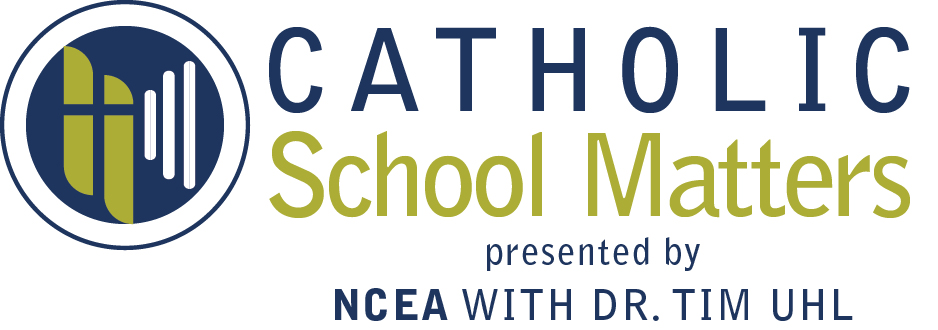The following blog was contributed by Justin McClain, O.P., theology teacher at Bishop McNamara High School in Forestville, MD.
As a theology teacher, my perspective on Catholic education easily centers on the role that Catholic schools play in forming disciples – making saints, if you will – out of its students. Ideally, this is an endeavor that goes beyond religion/theology class, and into the multi-faceted curricular exposure of students throughout their courses. As such, Dr. Tim Uhl’s latest podcast on the NCEA’s “Catholic School Matters” series is well worth the listen, especially in light of Dr. Uhl’s focus on Church documents on education.
In this podcast, Dr. Uhl discusses the USCCB document Teach Them: Statement on Catholic Schools (1976). Teach Them served as a relatively brief follow-up to the USCCB’s To Teach as Jesus Did (1972). In this particular podcast, Dr. Uhl discusses the implications of the document with Gwendolyn Byrd, who has served as the Superintendent of Catholic Schools for the Archdiocese of Mobile… for thirty-five years (and via the podcast, we are reminded that she has served under only two archbishops within that time). In other words, on a personal note, following Ms. Byrd’s already extensive stint in education by the time she became the superintendent, she has actually been in that role since the year I was born!
What struck me while listening to this podcast is a recurring theme with which I have become familiar over the years, especially at the intersection of being an educator, a Church historian, and a self-professed Church document junkie: that the Church’s magisterial documents on education since Vatican II have been ahead of their time, as it were. We of course have seen this with Vatican II’s Gravissimum Educationis: Declaration on Christian Education (1965), and in the Vatican’s and USCCB’s documents that have been published since. Forty-one years after Teach Them, that theme, imbued with what constitutes the goals of Catholic schools, continues to evidence itself.
I would greatly encourage you to take the time to listen to this podcast, in which we are treated to the in-depth wisdom of Gwen Byrd, who comes with a wealth of experience, including that garnered from her memory of her largest-ever class: sixty-three students! We likewise hear Ms. Byrd’s explanation of how “classes” have transitioned into “communities” over the decades. Dr. Uhl and Ms. Byrd also ruminate upon the important role that lay teachers play in Catholic schools, the subsequent need for ongoing teacher formation in order to familiarize faculty with the Church’s teachings on any number of issues, how parents and Catholic schools must take seriously their respective roles in their children’s formation, and how Catholic schools in the United States have traditionally served as a point of encounter between the African-American community and the Catholic Church. (As a black Catholic myself, I particularly valued hearing Dr. Uhl and Ms. Byrd’s overview of this latter point.) Listen to this podcast in order to discover the remainder of these two Catholic educational system superintendents’ profoundly complementary insights.
